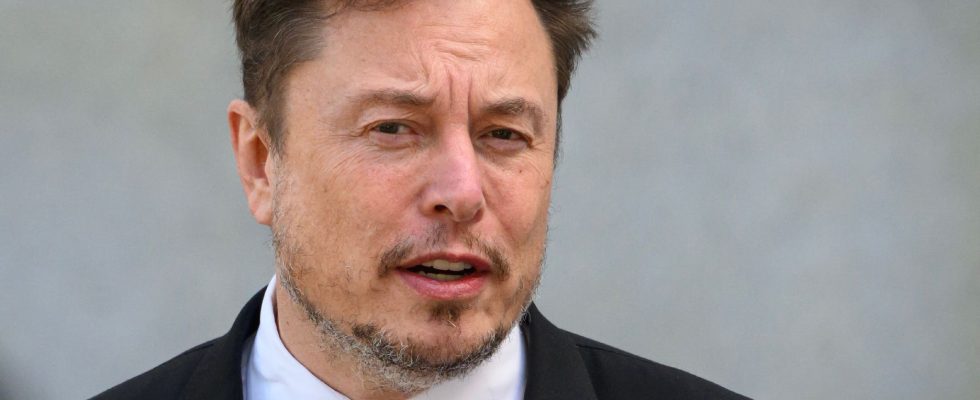Do as I say, not as I do. Elon Musk is one of the signatories of a resounding column, published last spring, criticizing the lack of control around new generative artificial intelligence (AI), such as ChatGPT, Claude and Midjourney. “Powerful AI systems should only be developed when we are certain that their effects will be positive and that their risks will be manageable,” wrote its various authors, calling for a six-month pause in their development. At the same time, the billionaire nevertheless launched his own company, xAI. And after attending a major AI security conference in London, he launched his first language model “Grok” this weekend.
The latter powers an interface of the same name, resembling ChatGPT in spirit. The difference is that this chatbot often responds in a sarcastic manner and constantly feeds on the X thread (ex-Twitter), not very moderated, richly stocked with false information and violent content. What’s more, his speech is much freer – less “woke” Musk proudly assures. “Grok will also answer ‘daring’ questions that are rejected by most other AI systems,” xAI communicated. Leaving unanswered the question of the “positive effects” of such a tool.
If some saw in Elon Musk’s cries of rage only a ruse to give himself time to catch up with OpenAI and its competitors, the billionaire’s obsession with security is actually rather sincere. It dates back according to the author of a recent biography about him, Walter Isaacson, to a meeting more than ten years ago with Demis Hassabis, founder of the company DeepMind (since acquired by Google). “Unless we have protective measures in place, artificial intelligence systems could replace humans, rendering our species obsolete or even extinct,” quotes Isaacson. But here again, the star entrepreneur did not hesitate in response to… going even further in his development of AI in areas as critical as transport or health. Even if it means causing some mockery. For example, Musk predicted autonomous driving in 2016 on his Tesla cars, or functional 2.0 brain implants in humans in 2020.
Total AI Exploration
Nothing went as planned. Without completely failing, on the contrary. Tesla revolutionized the issue of automatic piloting (not without controversy and sometimes fatal accidents). Still within his automobile company, and thanks to the extensive data acquired by its sensors installed in its passenger compartments, he has developed prototypes of futuristic humanoid robots capable of moving in a human environment and manipulating objects. Its subsidiary Neuralink is reportedly about to test its famous AI-boosted chips on humans. A list to which we must now add “Grok”, in the language, which also competes in terms of performance with numerous models like GPT 3.5 from OpenAI.
Despite a sometimes messy strategy, Elon Musk is therefore pursuing a total exploration of technology with some success. To the point of soon realizing all his fears – he notably declared in London that work would soon be “useless” in the face of the advance of AI. How to unravel the Musk mystery? In his book, Walter Isaacson provides a clue: even if Elon Musk fears the impact of AI failures or their misuse, he thinks that as artificial intelligence evolves it will inevitably one day worry about “understanding the universe, And [que cela l’amènera] to probably want to preserve humanity”.
